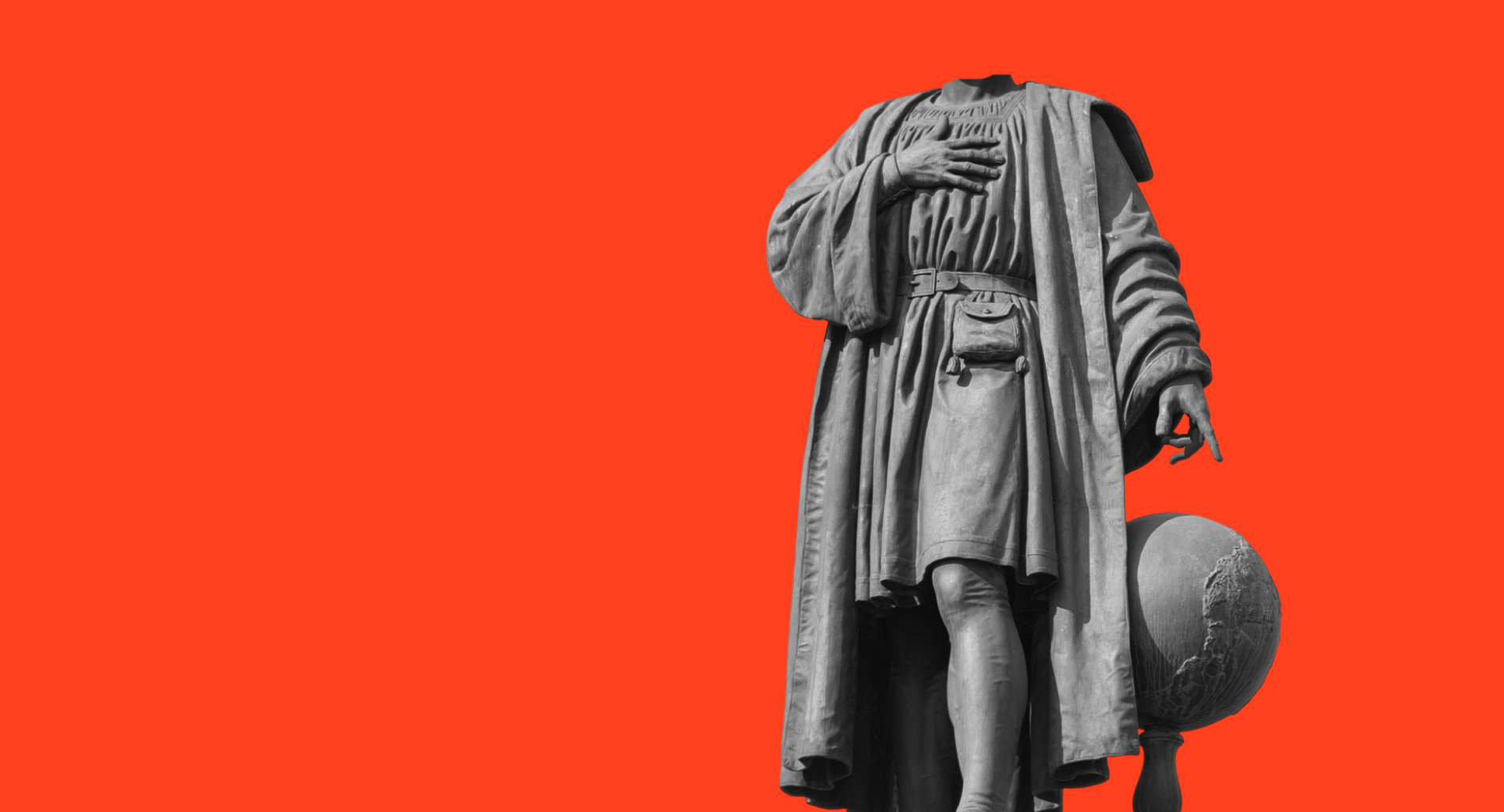Historically, Latin America has been forced to overcome the residues of colonialism, and among them: colonial thinking. We can understand colonial thinking as another form of oppression (intended or unintended), where culture and hierarchies seem to form a single vision of the future and progress.
As Chimamanda Ngozi Adiche once said, “The danger of a single story is that it robs people of their dignity”. She pointed out how we humans, when faced with limited ways of thinking, tend to understand and perpetuate such ways, ignoring many others. We could say that what we learn is what we practice, and this can play for good or bad, excluding and minimizing the experience of others, or including and learning from different cultures, which leads to growth, wealth, and knowledge.
As designers, we’re constantly met with challenges, and most often given an exact picture of what the outcome of our work should be. But the fast-paced production of our craft is missing the space for continuous reflection, particularly about our processes and the systems we have constructed. It may be that, given the space for contemplating our craft, we’ll discover the outcomes we actually need, and not only those that the market wants. This is the starting point of the Design Matters conferences: a much-needed space for designers to review their practice, pump up their skills, find inspiration and regain purpose.
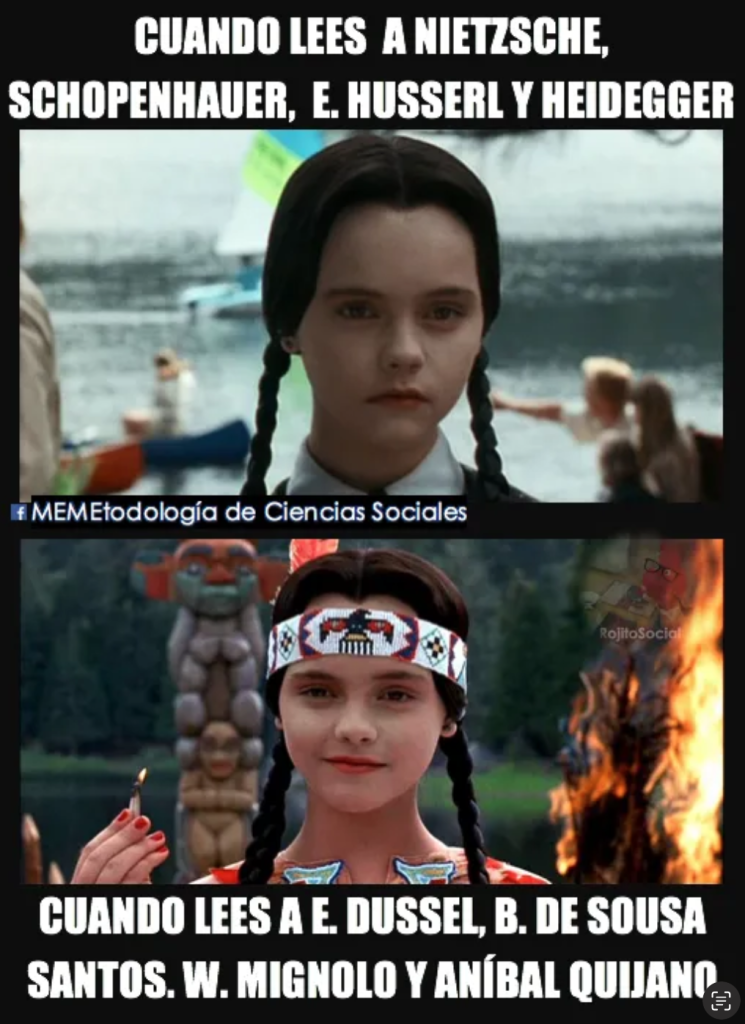
On May 24, 2023, Design Matters gathered a group of international designers who were speakers at the previous edition of our Latin American conference, and engaged them in a conversation about the most relevant topics in the design industry. This group of people formed a Committee, which held the ultimate responsibility of determining the 3 themes for Design Matters Mexico 24.
With a majority of Latinx members, the most important topics in the minds of our community and fellow designers were traced and further worked on. A total of 13 designers took the opportunity this time around. They were (from the top left): Adrian Solca (EPAM Continuum), Layshi Curbelo (Command Z), Sandra Garcia (Tipas Type), Roberto Cabezas (CENTRO), Angel Lorenzo (frog), Nikita Ghugari (Xeno Co-Lab), Dafne Martinez (Tipas Type), Claudia Sosa (Sofía), Benjamin Real (Multiplica), Swar Raisinghani (Xeno Co-Lab), Regina Bortoni (Openn), Michael Christiansen (Design Matters) and Elsie Ralston (Design Matters).
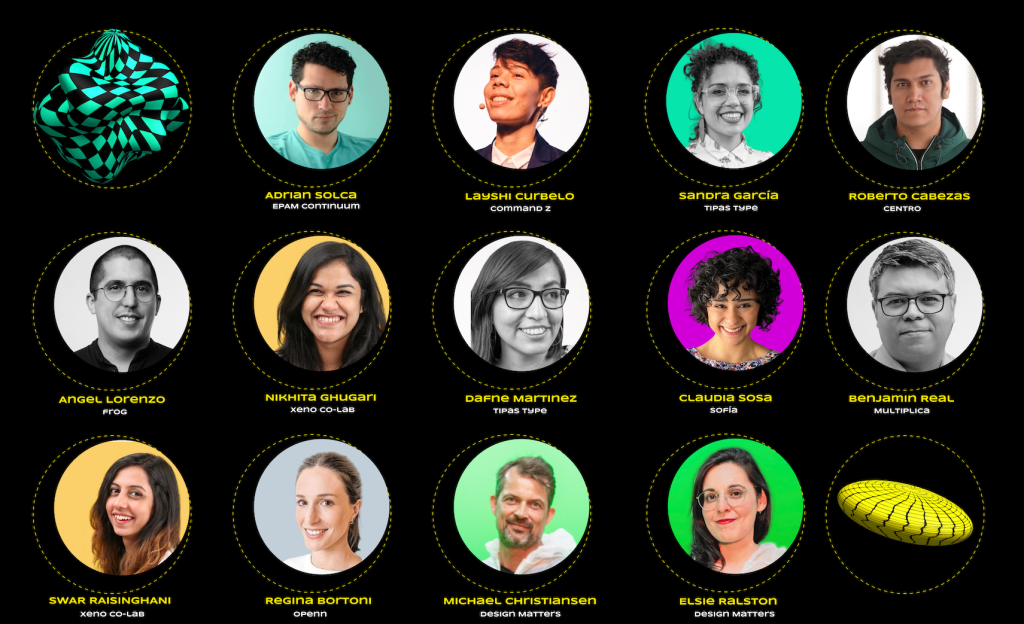
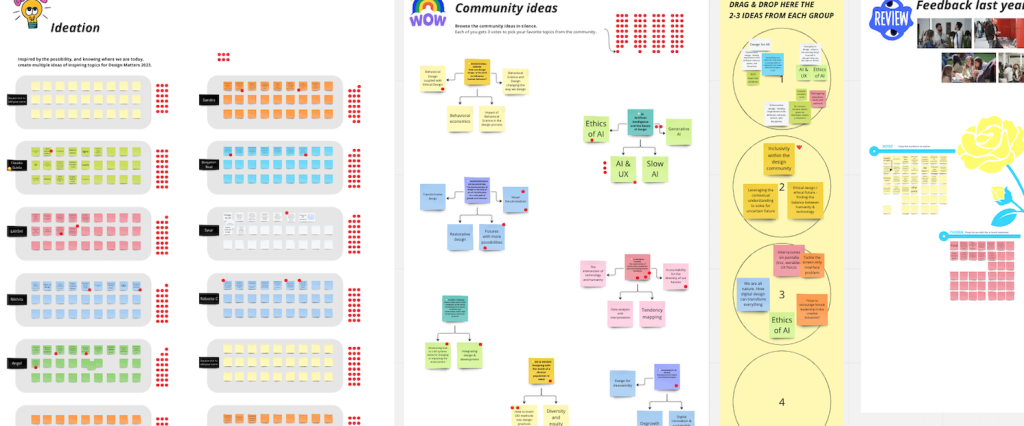
The Committee members came prepared with their ideas, but they also took into consideration the input gathered from our community weeks before. After reviewing the debated subjects raised during the workshop, the Design Matters team worked on a draft of the themes. This text got feedback from the Committee and this is how the 3 themes for Design Matters Mexico 24 were born:
FROM LATIN AMERICA, WITH LOVE
“We are all nature. Digital design can transform everything.”
When technology advances faster than our capacity to collectively understand its impact, it’s time to take a step back and reflect on the path we’ve been handed, but also on the one we are building, where future generations will thrive (or abide). It’s time to pay better attention to natural systems, and in particular to the communities that never stopped sharing their environments with nature.
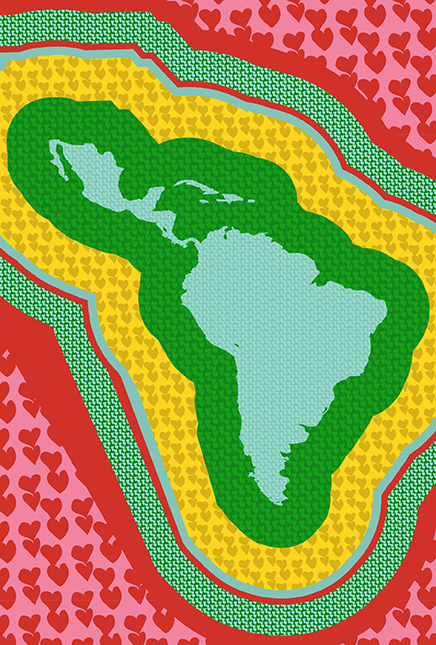
With a deeply rooted colonial past, Latin American countries adopted European and North American cultural representations that stepped upon local tradition and identity. From entertainment to mass consumption, whiteness prevailed. Educational institutions and governmental services did not meet the needs of indigenous communities or embraced their heritage, but instead took actions that shamed their legacy. From language barriers for people speaking native languages instead of Spanish, to cultural appropriation, there are historical wounds the Latin community has begun to heal. The support from grassroots movements has been key to effecting changes, and governmental policies have started to pay off, like the case of the bilingual intercultural education approach many countries are adopting, allowing indigenous children to learn in their native languages and through educational systems inherent to their native communities.
This theme will bring to the stage the intersection of technology and humanity, with designers from all across Latin America sharing how they’ve designed solutions for local needs, but with a local approach.
We will learn how the path of indigenization and decolonization of design is not only a safe bet for inclusion, but also a significant opportunity for new and unique types of design. The talks will tap into visual decolonization, restorative and transformative design, and an overall understanding of how the indigenous approach to nature, has a valuable lesson for designers who want to learn how to implement a natural perspective to their craft.
The talks will show how heritage and ancestral knowledge can influence fast-developing design and tech. And they will share with us why that particularly matters in the Latin American context.
A CALL FOR THE FUTURE
“Reimagining a brave new world”
With a population of over 7 billion people, we have an abundance of cultures, beliefs, and lifestyles. Unfortunately, there’s a tendency for only a singular, dominant cultural approach to prevail, suppressing the growth and existence of alternative viewpoints and practices. It’s often, the mainstream and white-centric way of life that is given precedence, causing other cultures and alternative ways of living to be overlooked. It’s clear that a shift is necessary, and it can be beneficial to acknowledge that multiple cultural perspectives can coexist and flourish.
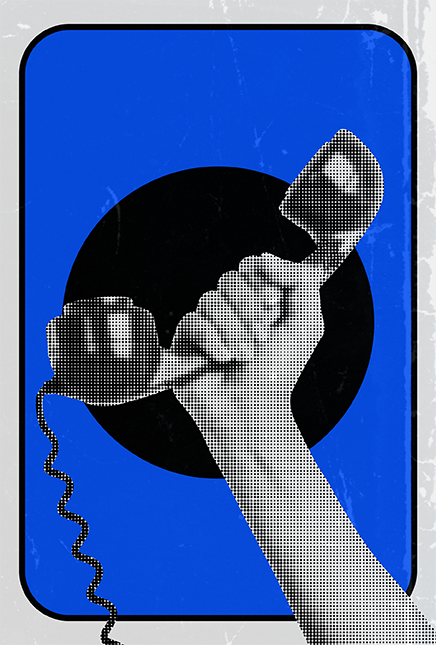
The term “pluriversal futures” refers to a vision or possibility of the future that recognizes and honors the coexistence of diverse views, cultures, and ways of being. Pluriversal Design is an approach that embraces diverse worldviews. It acknowledges that there is no universal or singular solution to design problems, and seeks to create inclusively, respectfully, and responsively to the needs and values of different communities and individuals. It seeks to de-center the dominant Western model of design and valorize multiple ways of knowledge production and experience. Pluriversal design advocates for co-creation to generate more relevant and impactful solutions. Ultimately, it’s an ethical and political perspective that aims to address issues of justice and equity in design.
How can we ignite our power to design pluriversal futures? The times where design exists as a catalyst transversal to all industries, enabling human development, but only under one premise: to protect the diversity of our socio and environmental resources. In other words, a future where design is the driving force behind sustainability and social responsibility.
With this theme, speakers will share their perspectives on applying Diversity, Equity, and Inclusion (DEI) principles to design processes, and they will also explore beyond the user or planet-centric design with new and pluriversal approaches to their craft. We will open the conversation around how to enter an era of radically different practices, where we see the future with optimism, and move together towards building an industry that is environmentally responsible, inclusive with all groups of people, and that celebrates diversity while growing beyond borders or cultural differences. In other words, we’ll explore the value of diversity, the power of inclusion, and the potential for a truly multicultural society.
THE RADICAL OPTIMIST
“Design as a universal language”
The radical optimist is a designer who wants to continue developing skills and stay open to new and diverse views of the world, and how to design for it.
With this theme, we want to explore how to ramp up our skills and find solutions to the challenges we face as designers. From our day-to-day in high-paced environments, which too many times seem to favor rapidness over transcendence, to the small compromises we make along the way in our design processes, that may change completely the impact of our initial ideas and intents.

We don’t want to talk about how to sell more products or make our apps more addictive. Instead, we plan to take a look at our practice with responsibility and find new perspectives toward redefining our models and ways of thinking. What is the next big thing in design? How to be disruptive but keep our focus on understanding our context to solve the uncertain future?
This theme is the space to reflect on whether or not something as AI should be viewed as a threat or an opportunity, and the starting point of a conversation on how new tech can affect our society. Think of motivating educators to reconsider pedagogical approaches, or the essential role of digital literacy in democracies. The development of new tech is always exciting, but it comes with risks, like the obvious human bias that some of these systems reflect.
With inspiration, methods, ethical approaches to AI, UX, UI, and other design practices, we can gain skills and views on how to grow in our paths as designers (and humans), to create a lasting impact on people and the planet.
Paraphrasing Chimamanda Ngozi Adiche, “Stories matter. Many stories matter”. And this is what Design Matters aims at with the upcoming conference in Mexico City, where a plural and diverse lineup of speakers from across Latin America and the world, will reveal how designers can rebel, even through small or imperceptible actions, making diversity matter, and bringing dignity back to people.
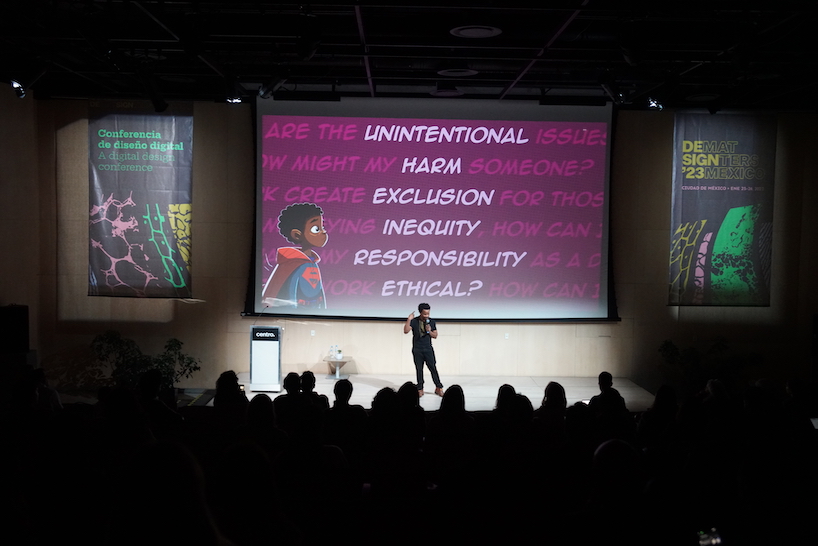
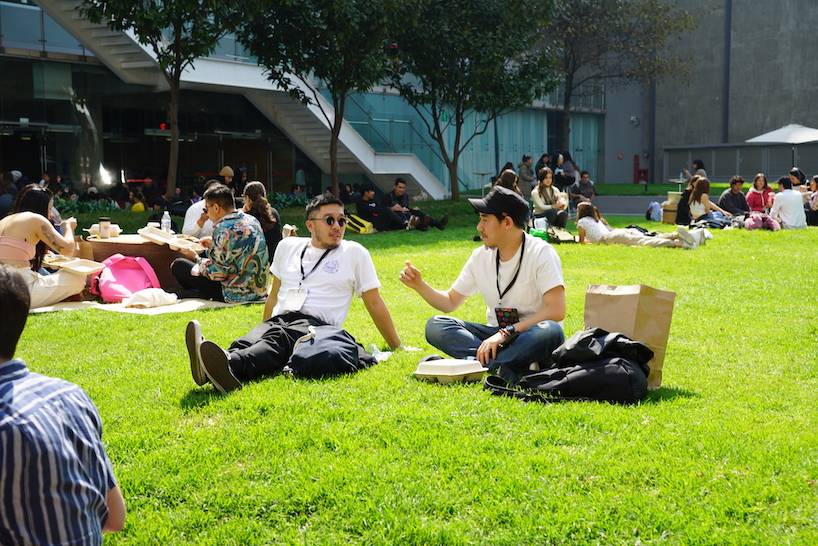
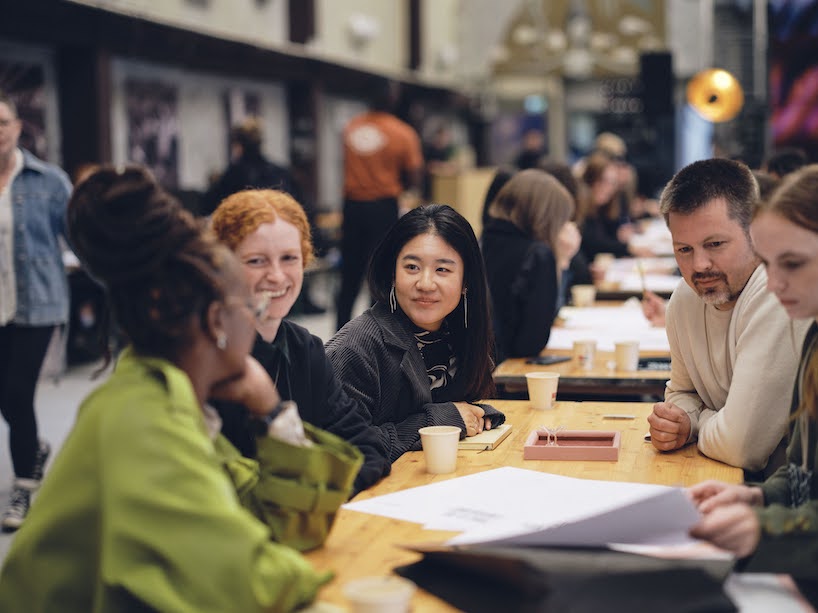
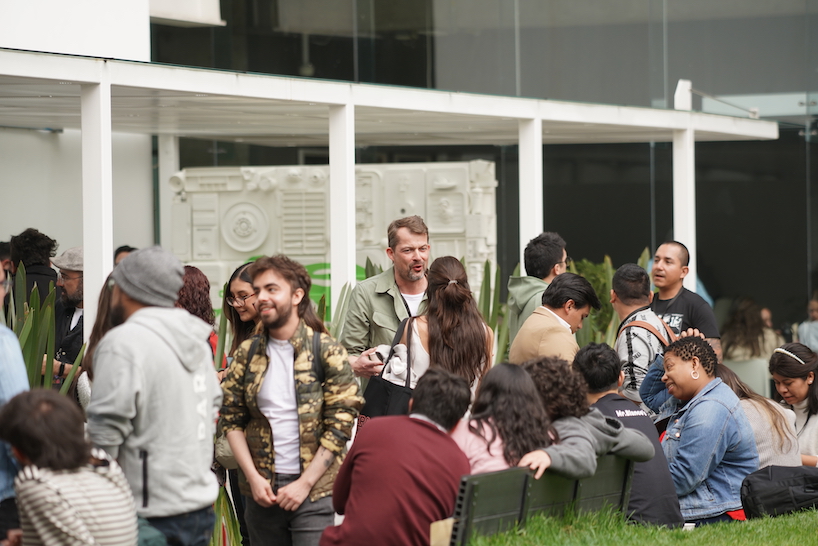
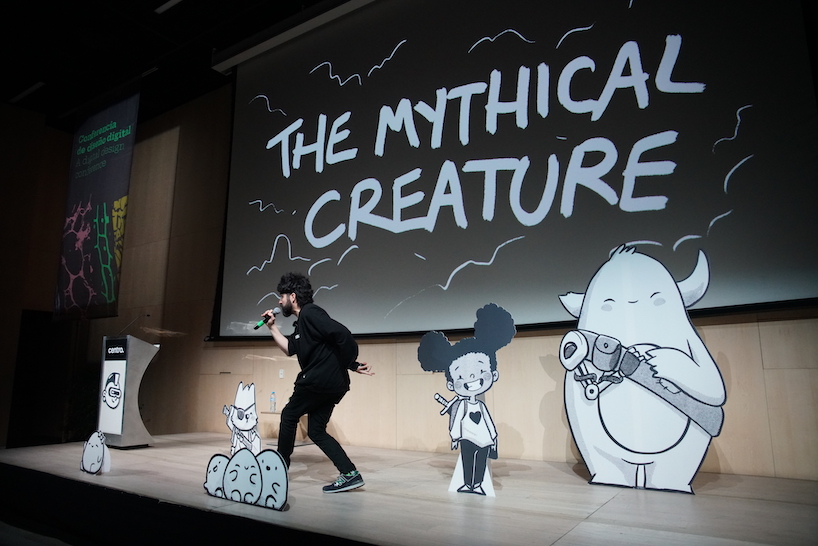
Join us in Mexico City
The event will take place both online and in Mexico City, on Jan 31- Feb 1, 2024.
If you join with your team, you can get a Group Discount, and if you belong to a minority you can get a DEI Discount. Read more about the discounts and get your ticket here.
Cover photo: Elsie Ralston / Design Matters. A digitally beheaded statue of colonizer Christopher Columbus sets the mood for what Art historian Martin Warnke would call “iconoclasm from below,” the expressions of a new generation that is ready to take down colonial symbols of oppression.


